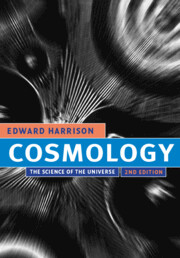Book contents
- Frontmatter
- Contents
- Preface
- Introduction
- PART I
- PART II
- 10 Curved space
- 11 Special relativity
- 12 General relativity
- 13 Black holes
- 14 Expansion of the universe
- 15 Redshifts
- 16 Newtonian cosmology
- 17 The cosmic box
- 18 The many universes
- 19 Observational cosmology
- PART III
- Appendix – Fundamental quantities
- Index
18 - The many universes
from PART II
Published online by Cambridge University Press: 05 June 2012
- Frontmatter
- Contents
- Preface
- Introduction
- PART I
- PART II
- 10 Curved space
- 11 Special relativity
- 12 General relativity
- 13 Black holes
- 14 Expansion of the universe
- 15 Redshifts
- 16 Newtonian cosmology
- 17 The cosmic box
- 18 The many universes
- 19 Observational cosmology
- PART III
- Appendix – Fundamental quantities
- Index
Summary
Hereafter, when they come to model Heav'n
And calculate the stars: how they will wield
The mighty frame: how build, unbuild, contrive
To save appearances …
John Milton (1608–1674), Paradise LostSTATIC UNIVERSES
Before the twentieth century most Europeans and people of European descent believed the universe was created only a few thousand years ago, or at most a few hundred thousand years. Some people in the 18th and 19th centuries, more radical in outlook, thought the static Newtonian universe was in a steady state – everything remaining eternally unchanged – and the stars would shine endlessly. The realization in the late 19th century that stars have finite energy resources brought to an end the idea of a perpetually unchanging cosmos.
Static Einstein universe
In 1917, Einstein contrived an ingenious static universe using his recently developed theory of general relativity. In this universe, as in all universes we discuss, all places are alike and matter is distributed with uniform density.
Space and time in the new theory of general relativity had at last been awakened from the dead and become active participants in the world at large. Einstein, believing the universe to be static, tranquilized spacetime with a counteracting agent. In his 1917 paper, “Cosmological considerations on the general theory of relativity,” he wrote, “I shall conduct the reader over the road I have myself traveled, rather a rough and winding road, because otherwise I cannot hope that he will take much interest in the result at the end of the journey. The conclusion that I shall arrive at is that the field equations of gravitation that I have championed hitherto still need a slight modification.”
- Type
- Chapter
- Information
- CosmologyThe Science of the Universe, pp. 355 - 386Publisher: Cambridge University PressPrint publication year: 2000



